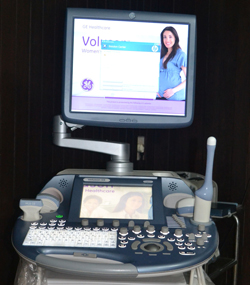
Garbba Rakshambigai Fertility Centre being the best centre in Chennai for infertility treatments, has separate tests for men and women, keeping their need, purpose and privacy in mind. We respect the privacy of both of them and have individual tests.
Infertility may be in the male partner, female partner or both. Diagnostic tests are done to examine both the partners and this may be time consuming. You should be prepared to stay patient and committed, while undergoing the evaluation for infertility.
Problems in men may arise due to sperm production, hormonal problems, issues with passage of semen through the reproductive tract or genetic problems. The following tests may help in examining the problem:
• Semen analysis. SThis process involves collecting the semen and analysing it using special methods. The number of sperms, motility and morphology can be assessed using computerized techniques.
• Hormone testing. Using blood tests you can assess the level of sexual hormones and to rule out endocrine problems like thyroid disorders.
• Ultrasound. To detect problems like retrograde ejaculation or to screen for abnormalities, Ultrasound may be used.
• Genetic testing. Genetic testing is done to find out whether there's a genetic defect that can cause infertility.
• Testicular biopsy. In this test, a small sample from the testis is obtained with a needle and studied under a microscope.
Problems with the ovaries, hormones, uterus, fallopian tubes or cervix mat be found with women who have fertility issues. Firstly, a thorough gynaecological physical examination is done and sometimes additional tests may also be required. Each patient is different and not all require all the tests. Both the physician and the doctor need to be patient to get better results. Some of the commonly conducted tests are:
• Ovulation testing.Blood tests that detect female hormones can be used to find out if the ovaries in the woman are releasing eggs during the menstrual cycle.
Blood tests which help to check if the female hormones can be used to find out if the ovaries release eggs during the menstrual cycle.
• Hysterosalpingography. A set of X-rays of the reproductive tract are taken once a dye is injected into the uterus. This is useful to delineate the reproductive tract’s cavity and also identify blockages.
• Ultrasound. UAn extension of routine gynaecological evaluation in many cases, Ultrasound can be used to identify anomalies of the ovary, fallopian tubes and the uterus. At Garbba Rakshambigai Fertility Centre, high resolution 4-D ultrasonography is routinely done which provides excellent detail.
• Hormone testing. Apart from reproductive hormones, thyroid hormone level and levels of pituitary hormones may need to be assessed.
• Hysteroscopy. Hysteroscopy may be required in some women .To visualize the inside of the uterine cavity in some women, hysteroscopy is done. For further information, please refer to our section on hysteroscopy to learn more.
• Laparoscopy. Laparoscopy may be required to identify endometriosis, scarring, blockages or irregularities of the fallopian tubes, and problems with the ovaries and uterus.
• Genetic testing. To determine whether there is a genetic defect, genetic testing helps determine whether there's a genetic defect causing infertility.
Talk to us if you have any queries on the diagnosis of infertility. We are available 24/7 at your service. At Garbba Raskhambigai Fertility centre, the tests for men and women are carried out separately.